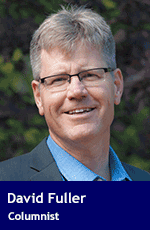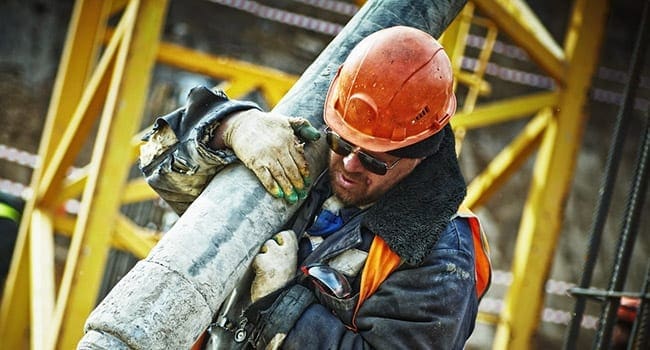 Homelessness is increasingly a problem in cities big and small across North America. Yet as business leaders we tend think the issue isn’t our problem – unless, of course, we have a business affected by a homeless camp, squatters in our doorsteps or addicts in our alleyways.
Homelessness is increasingly a problem in cities big and small across North America. Yet as business leaders we tend think the issue isn’t our problem – unless, of course, we have a business affected by a homeless camp, squatters in our doorsteps or addicts in our alleyways.
We can’t comprehend why people aren’t working like we are or taking responsibility for their lives.
And we wrongly assume that the crime, squalor and social problems associated with poverty and homelessness can be fixed with increased public funding, greater police presence and harsher penalties.
It’s easy for us to complain and demand solutions to these inconveniences to our business, shopping patterns or nice neighbourhoods. But have we considered what our responsibilities are as leaders of commerce and what solutions we have access to?
At this point you’re probably thinking I’ve lost my mind if I’m suggesting businesses leaders like you and I have a responsibility for dealing with poverty in our communities.
But let me challenge you to consider that working to solve this problem might actually be good for you, your business and your community.
The solutions can no longer be left to government and social agencies. Let’s face it: there has been colossal failure by agencies and government in dealing with poverty.
Society has continued to fund band-aid programs. And government and charities have actually made things worse by creating dependencies and lowering the self worth of the poorest of our society, who feel their only option is a handout.
Yes, we feel good when we donate to a charity that hands out free food, free needles, and coats and clothing to those below the poverty line. We feel justified if we think our tax money pays for more policing or health care for the homeless. At Christmas, we give a few bucks to our favourite charity for a pair of mitts or a hamper, then wash our hands of the poor for the rest of the year.
I grew up in a safe middle-class family and I went on to have businesses that earned me good money. But I have a notion of the challenges of poverty and homelessness, after 30 years of volunteering thousands of hours in the downtown of my community, serving soup and sandwiches, only to see the problems worsen.
I’ve felt good over the years by ‘helping’ those in need. But I honestly believe the only time my good deeds have been of any benefit to anyone in poverty is when I’ve had a real relationship that was not based on me giving something and expecting nothing in return.
I was frustrated with the lack of change that resulted from my time, energy and donations. So I recently asked some of the people at a local drop-in centre where I volunteer why they came. I questioned them about the root of homelessness.
One woman told me she was a third-generation alcoholic and she chose to live on the street because if she got an apartment, her husband would move in and beat her up. She wasn’t asking for pity and when I told her I respected her decision, she smiled.
Another woman told me she lived in poverty because she had mental health issues after having been sexually abused as a child in foster care. “They asked me, a child, where I wanted to live after they had taken me from my mother. How was I, a child, supposed to know that?”
One fellow said the drop-in centre was a place to go in the evening, to get out of his apartment and find community. He said others were there to get sandwiches for lunch at their jobs. Some, he said, were there because there was a cycle of poverty and that more money was the solution.
I asked him if giving $1,000 to everyone in the room would solve the problem. He suggested I would need to get an agreement from each person that they would use that money to achieve a goal. Then, after a few minutes of thinking, he said: “No, giving more money wouldn’t fix anything. The problem is different: we need more jobs.”
The poor are no different than you or I. They want to be respected. They want to contribute to society. Yes, they need safe and affordable housing and food, but I’ve never heard anyone say they wanted everything for free.
Handouts of all sorts create dependency. And when we don’t respect people, then ask for accountability for their actions as we would anyone else, we do them a disservice.
So where does business fit in and what are our responsibilities?
To make the biggest difference, we should give the poor jobs. Business owners all have jobs big and small that could be done by the poor, many of whom have skills and need the opportunity to work.
In my 30 years of business, I’ve hired people off the street, children who shoplifted from me, mentally-challenged youth, immigrants and socially awkward people. The jobs I offered weren’t high paying and may have only been a few hours a week. But they allowed every one to gain dignity and self worth.
Sometimes it took considerable effort on my part or the part of my staff to make things work. Occasionally I was disappointed when someone didn’t show up for a shift. But I can honestly say that none of my charity even remotely compared to the difference that a job made in someone’s life.
Imagine what would happen if 1,600 businesses in a community hired someone living in poverty for only two hours a week to start. Two hours might not seem like much to you but a job can give purpose, hope and the first step out of poverty to someone who has hit rock bottom.
Not only does work help financially but it empowers people to take control of their lives and rise above those aspects of poverty that pull them down. Empowered people try to make their societies and communities better.
It’s easy to be critical of social problems and the lack of results. But until we use our talents as leaders to make a difference, the shame should be on us.
Not only should we be creating jobs and building capacity, talent and self worth in our poor, we should be holding accountable those charities and agencies that depreciate the value of our poor by holding them in poverty. They do this by counting the poor as statistics to ensure their continued funding, instead of being focused on results.
When the model is broken, we in business have a responsibility to become actively engaged. We must use our resources so homelessness, crime and poverty are reduced, not perpetuated.
Dave Fuller, MBA, is an award winning business coach and a partner in the firm Pivotleader Inc. Comments on business at this time? Email [email protected]
The views, opinions and positions expressed by columnists and contributors are the author’s alone. They do not inherently or expressly reflect the views, opinions and/or positions of our publication.

